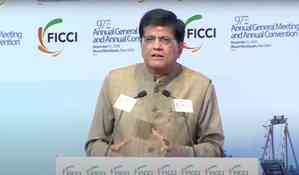Should you work hard or smart?
When it comes to achieving success in life, people often debate whether it is better to work hard or work smart. Some people argue that success is all about working hard, putting in long hours and sacrificing personal time. Others believe that working smart is the key to success, finding ways to maximize productivity and efficiency without overworking yourself. In this article, we will explore the pros and cons of working hard versus working smart and help you decide which approach is best for you. Working Hard

When it comes to achieving success in life, people often debate whether it is better to work hard or work smart. Some people argue that success is all about working hard, putting in long hours and sacrificing personal time. Others believe that working smart is the key to success, finding ways to maximize productivity and efficiency without overworking yourself. In this article, we will explore the pros and cons of working hard versus working smart and help you decide which approach is best for you.
Working Hard
Working hard is often associated with a "no pain, no gain" mentality. This approach involves putting in long hours, working weekends, and sacrificing personal time in order to achieve success. The idea is that the more time and effort you put into your work, the greater the rewards will be in the end.
Advantages of Working Hard
One of the main advantages of working hard is that it can lead to a sense of achievement and fulfillment. When you work hard and see the results of your effort, it can be incredibly satisfying. Working hard can also help you develop a strong work ethic, which can be valuable in many areas of life.
Disadvantages of Working Hard
However, there are also several disadvantages to working hard. One of the biggest drawbacks is that it can lead to burnout and stress. When you work too hard for too long, you may become exhausted, which can lead to physical and emotional problems. Additionally, working hard can limit your ability to focus on other areas of your life, such as relationships, hobbies, and personal interests.
Working Smart
Working smart involves finding ways to maximize productivity and efficiency without sacrificing personal time. This approach involves using tools and techniques to streamline your work process and get more done in less time.
Advantages of Working Smart
One of the main advantages of working smart is that it can lead to greater productivity and efficiency. When you use tools and techniques to optimize your work process, you can get more done in less time, which can be beneficial in many areas of life. Additionally, working smart can help you maintain a better work-life balance, allowing you to focus on other areas of your life, such as relationships, hobbies, and personal interests.
Disadvantages of Working Smart
However, there are also several disadvantages to working smart. One of the biggest drawbacks is that it can lead to complacency and a lack of ambition. When you focus too much on optimizing your work process, you may become less willing to take risks or pursue new opportunities. Additionally, working smart may not always be enough to achieve success, particularly in competitive industries where hard work is often required.
Which Approach is Best?
Ultimately, whether you should work hard or work smart depends on your individual goals, values, and priorities. If you value achievement and are willing to make sacrifices to achieve success, working hard may be the best approach for you. On the other hand, if you value a healthy work-life balance and want to optimize your productivity without sacrificing personal time, working smart may be the best approach.
In conclusion, both working hard and working smart have their advantages and disadvantages. The key is to find a balance that works for you, based on your individual goals and priorities. By taking a thoughtful and intentional approach to your work, you can achieve success while maintaining a healthy work-life balance. Whether you choose to work hard, work smart, or a combination of the two, the most important thing is to stay focused, committed, and passionate about your work.


 City Air News
City Air News 











